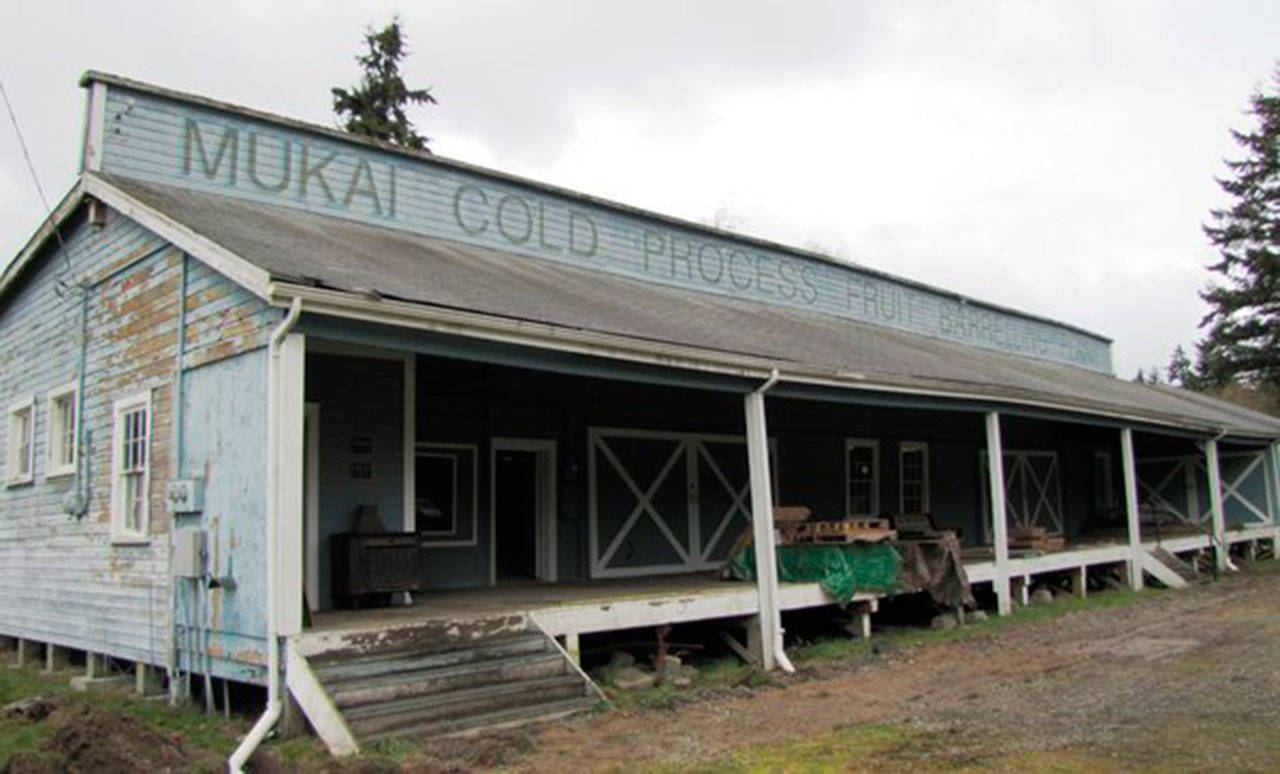Seven months after King County’s department of natural resources first announced its plan to buy the Mukai barreling plant to ensure its preservation, the County Council has approved the purchase.
But, as part of the agreement, Vashon Forest Stewards is in jeopardy as the 5-acre parcel of county land the organization has occupied for 12 years is being sold.
The King County Council last Tuesday unanimously voted to pass two ordinances that together allow the county to purchase the 2-acre Mukai barreling plant property — which lies on a separate parcel from the Mukai Home & Garden that has been preserved by the Friends of Mukai group — for $435,000 from current owner Frank Zellerhoff. In return, the county will surplus its 5-acre piece of land occupied by the Forest Stewards. Zellerhoff, who owns a stump grinding business that requires industrial-zoned land, will buy the Forest Stewards’ land west of Sawbones for $500,000.
In a press release, King County Council Chair Joe McDermott shared his pride about the council’s decision.
“Preserving the Mukai Fruit Barreling Plant is critical to telling the story of this enterprising family and an important chapter of not only Vashon Island’s history, but our regional and national history as well,” he said. “This is the next step in an incredibly important community effort to pay tribute to an integral family of our region’s heritage, while remembering the very hard lessons from a dark time in our past.”
According to King County Department of Natural Resources Director Christie True, funds for the purchase of the plant are coming largely from the state — $350,000. Another $35,000 is coming from the county, and Friends of Mukai is raising the remaining $50,000.
King County will also fund the first phase of restoration to the barreling plant with funds it receives from the sale of the 5 acre parcel to Zellerhoff.
Meanwhile, Vashon Forest Stewards (VFS) Director Dave Warren said his organization has been searching for another piece of appropriate land, but has had no luck thus far. He said that while neither he nor Zellerhoff want VFS to remain on the land, Zellerhoff is willing to let the community forestry organization stay for two years, but is asking for $1,200 in rent each month. As part of a prior lease agreement with King County that has now not been renewed, the organization had been paying only the excise tax on the property for the past dozen years — less than $100 per month.
“We’re not wanting to stay, but that’s the reality,” Warren said. “We don’t really have anywhere to move. We’re kind of forced to pay this rent. We will continue to mill and process wood in a slightly limited way while we continue looking for something.”
King County has offered to pay up to $733 per month for two years to help VFS with the $1,200 rent. But Warren says that while he understands the need to preserve the plant and agrees with the motivations behind the effort, the decision still hurts. VFS has put somewhere between $50,000 and $60,000 worth of infrastructure into the space in the form of grading, graveling and installing a three-phase electrical system for the heavy equipment and saws. It has also built structures and a kiln.
“We’re going to end up paying for what we built, which is just weird,” he said.
Zellerhoff has said previously that he does not want to displace anybody, but thinks it’s unfortunate that both he and VFS need to be on industrial-zoned land as there is not much of it on Vashon.
Warren said Monday he is working with the state’s commerce department and private parties to find suitable space and secure funding for the infrastructure costs that will be incurred.
“We have to recreate that $50,000 to $60,000 in infrastructure, plus the effort of moving the kiln, containers and canopies,” Warren said. “It’s a lot of work. We’re in a tough spot.”
Once the county officially acquires the plant — the sale is set to close June 16 — it will enter into a lease agreement with the Friends of Mukai. The group will manage the property as part of its current plan to restore the entire Mukai area and open it to the public as an educational and community space.
Lynn Greiner, president of the Friends of Mukai Board, expressed her excitement about the recent development.
“We are thrilled that the Fruit Barreling Plant, as an essential part of the Mukai Farmstead and Garden, is now in public ownership,” she said. “This is a key piece of our long-range plan to develop the historical and cultural site into a vibrant community gathering place.”
She also outlined the group’s plans for the Mukai property as a whole. This year, the Friends’ group intends to make “major progress” on the restoration of the house, as well as prepare the garden for restoration.
Looking ahead to 2018, construction and design on the plant should begin with actual restoration work happening in two phases in 2019 and 2020. The group hopes to complete restoration on the entire Mukai property by 2021.
“We are grateful to King County, the state, our donors, our members and the broader community, for all the help in getting us to this moment — and understanding that the Mukai Farmstead and Garden is an island treasure,” Greiner said.
She explained that restoration efforts are continuing, but there “is a lot going on” at the property. It will be part of Vashon Center for the Arts’ Garden Tour this summer and Japanese immersion camps, as well as public open houses will be held.



